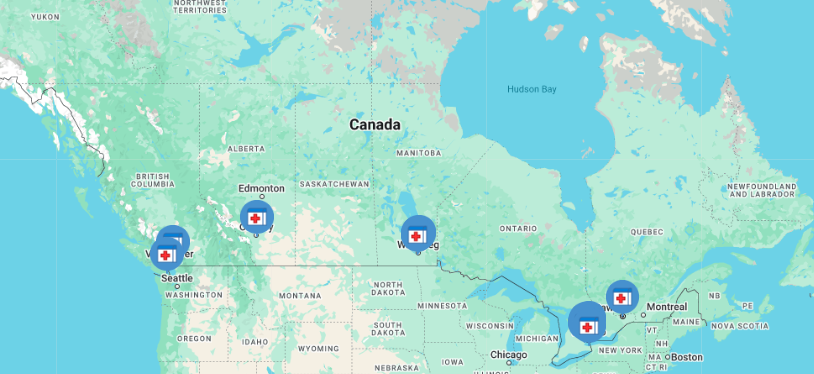GUIDED RELATIONSHIP MANAGEMENT PATHWAY
This 6-week one-on-one program is designed to help you build stronger, more fulfilling relationships—starting with your relationship to yourself. Whether you’re struggling with conflict, communication issues, emotional disconnection, or patterns that keep repeating, this program offers a supportive space to heal, reflect, and grow. You’ll gain tools to strengthen your emotional intelligence, deepen your connections, and navigate relationships with greater clarity and confidence.
You can also access a self-assessment and a curated library of mental health resources.
IMPROVE COMMUNICATION
SET HEALTHY BOUNDARIES
BREAK NEGATIVE PATTERNS
BUILD STRONGER CONNECTIONS
About the Program
Feel more secure in relationships, communicate with clarity, stop people-pleasing or avoiding conflict, and experience more meaningful connections.
DETAILS:

UNDERSTAND YOUR RELATIONSHIP PATTERNS
Begin by exploring your current relationship dynamics and how past experiences may be shaping your emotional responses. Your therapist will help you identify your attachment style, communication habits, and personal boundaries. Together, you’ll set goals that reflect the kind of relationships you want to cultivate—whether romantic, familial, or platonic.

BUILD EMOTIONAL CLARITY & BOUNDARIES
You’ll learn how to communicate more effectively, express needs without guilt, and navigate conflict without shutting down or escalating. Tools may include emotional regulation techniques, assertiveness training, and exercises to build trust and vulnerability. You’ll also work on building self-awareness and setting boundaries that protect your peace and promote connection.

CREATE HEALTHY, MEANINGFUL CONNECTIONS
In the final phase, your therapist will guide you in applying these new skills to real-life situations. You’ll explore how to maintain emotional safety in relationships, rebuild trust, and show up authentically without over-functioning or losing yourself. This program supports you in creating more secure, connected, and nourishing relationships—starting from within.

UNDERSTAND YOUR RELATIONSHIP PATTERNS
Begin by exploring your current relationship dynamics and how past experiences may be shaping your emotional responses. Your therapist will help you identify your attachment style, communication habits, and personal boundaries. Together, you’ll set goals that reflect the kind of relationships you want to cultivate—whether romantic, familial, or platonic.

BUILD EMOTIONAL CLARITY & BOUNDARIES
You’ll learn how to communicate more effectively, express needs without guilt, and navigate conflict without shutting down or escalating. Tools may include emotional regulation techniques, assertiveness training, and exercises to build trust and vulnerability. You’ll also work on building self-awareness and setting boundaries that protect your peace and promote connection.

CREATE HEALTHY, MEANINGFUL CONNECTIONS
In the final phase, your therapist will guide you in applying these new skills to real-life situations. You’ll explore how to maintain emotional safety in relationships, rebuild trust, and show up authentically without over-functioning or losing yourself. This program supports you in creating more secure, connected, and nourishing relationships—starting from within.
Meet Your Therapist
Building and nurturing healthy relationships is essential for emotional and psychological well-being. Relationship problems can significantly impact mental health, leading to increased anxiety, depression, and stress. Unresolved conflicts may cause feelings of isolation, low self-esteem, and emotional instability, ultimately affecting overall well-being. Engaging in open communication, practicing empathy, and seeking help from relationship experts can strengthen connections and foster resilience, ultimately enhancing one’s overall quality of life.
– Rubina

Dr. Rubina Rahiman
PhD, RCT, CCC
Not sure where to start?
Try a self-assessment.
Our self-assessment is adapted from the Dyadic Adjustment Scale (DAS), a widely used tool for assessing an individual’s perceptions of his/her relationship with an intimate partner. Use of the assessment is anonymous. Our online assessment includes guidance regarding scoring as well as suggested follow-up based on the outcome of the assessment.
Always keep in mind that there are a variety of factors that can influence the reliability of the assessment, that your individual scores may vary over time, and, above all, that it is an assessment rather than a diagnostic tool. As such, this and similar self-guided assessments are not substitutes for professional guidance and should never be considered definitive.
RELATIONSHIP MANAGEMENT RESOURCES
The following list of resources is provided solely for educational purposes. WELL Mental Health & Wellness is not affiliated with any third-party content providers or sources.
Commonly Asked Questions
What are the most common problems facing relationships?
Common problems in relationships include communication issues, trust breakdowns, financial stress, differing values or goals, lack of intimacy, and unresolved conflicts. These challenges can lead to misunderstandings and emotional distance.
What steps can I take to improve my relationship?
To improve your relationship, prioritize open communication, practice active listening, spend quality time together, show appreciation, address conflicts healthily, and consider seeking professional guidance for deeper issues. Commitment and effort are essential.
What methods do therapists use to support healthy relationships?
Therapists utilize various methods, including active listening, cognitive-behavioral techniques, emotional-focused therapy, communication skills training, and role-playing exercises to enhance understanding, resolve conflicts, and strengthen emotional bonds in relationships.
Canada's largest network of therapists.
Our diverse network of qualified mental health professionals can support you with many mental health concerns. We believe that excellent client-therapist relationships are crucial for effective support, which is why you can choose your own therapist, and change therapists, at any time.

Supporting you, wherever you are.
As a part of the WELL Health Medical Centre team, we offer in-person therapy at select WELL Clinics. The majority of WELL Mental Health and Wellness services are covered by private insurance and corporate benefits plans.
Available at select WELL Clinics in British Columbia, Alberta, Ontario, and Manitoba.



